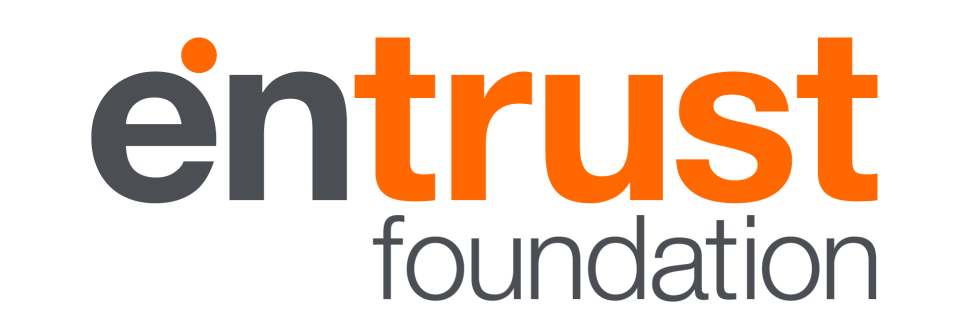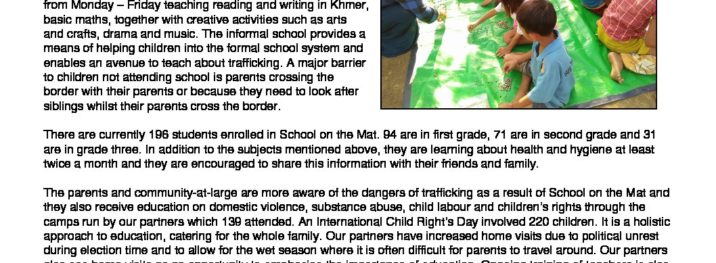School on The Mat - Year 2, Cambodia
Code:
KHM-CHO-SOM-P02
Country:
CambodiaCause:
EducationPopulation:
16.9 MillionHuman Dev Index:
#146 (Aus #5)Jan 19
Overview
This project will support five teachers run ten informal schools in five villages along the border of Cambodia and Thailand. Each teacher will have two schools in their village – a morning and an afternoon school. Each school teaches reading and writing in Khmer, basic maths, together with creative activities such as arts and crafts, drama and music. The informal school provides a means of helping children into the formal school system. Over a 3-year period, the aim is to help 90% of the students ready for the local government school. The children and parents will also be taught about trafficking, substance abuse, domestic violence, children’s rights and disaster preparedness through twice-yearly village camps.
Why support this
We appreciate that our partner has identified the major barriers to children improving their lives which is not being able to attend school either because they are crossing the border for work with their parents or because they need to look after siblings while their parents cross the border. We also appreciate that our partner works with the whole village, educating them on a range of important subjects. They also seek to work with parents in a separate micro-finance project, to assist parents with earning a living where they live. They are heavily invested in their local communities.
Budget
$42,190 for 2018 - year two of a three-year project. (The third year of funding in 2019 requires $44,030).
Objectives Include
- This area of Cambodia has high unemployment and a high level of poverty.
- Many parents cross the border into Thailand to look for work.
- Some take their children with them and others leave their children at home with grandparents, or in the care of the eldest child.
- The risks of child trafficking are high and children are not educated, perpetuating the cycle of poverty.
Expected Life Change
- A quality start to schooling with greater potential to continue through Primary School.
- Communities with the tools to prevent trafficking and reduce other at-risk situations.
- Greater opportunities to earn an income while knowing children are safe and cared for.

